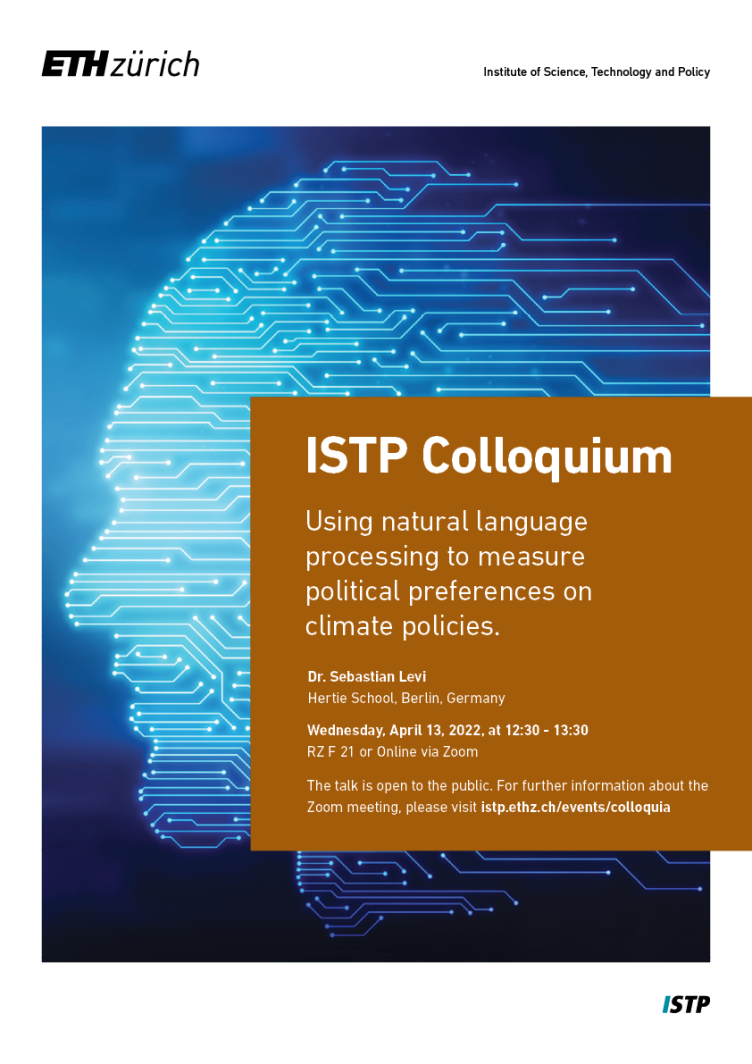Colloquium: Dr. Sebastian Levi
Wednesday, April 13, 2022, at 12.30 - 13.30
RZ F 21 or Online, Zoom | Sign up here
Using natural language processing to measure political preferences on climate policies.

Social scientists frequently seek to understand the political feasibility for public policies, yet panel data on political acceptance of public policies remains rare. Moreover, most data are often collected only in one specific location and only at one particular point of time. Using natural-language-process and machine learning, we develop a new workflow that allows researchers to extract political preferences on public policies from text data for multiple actors and over a large period of time. Here, we trained an algorithm that identifies political preferences towards three different public policies that mitigate climate change: carbon pricing, a regulatory coal exit, and electrifying road transport. We subsequently applied this algorithm to examine changes in political preferences across all political parties in the German parliament as well across a selected number of business association and environmental advocacy groups between 2000 and 2020. This presentation will outline the architecture of our algorithm, discuss methodological challenges, and present the preliminary results from the application of the algorithm in German political discourse on climate change policy.
About Dr. Sebastian Levi
Sebastian Levi is a visiting scientist at the ISTP and a postdoctoral researcher at the Hertie School Centre for Sustainability. In his research, he applies quantitative and computational methods to analyze the formation of political preferences and the adoption of public policies. Before visiting the ISTP, Sebastian has been a Visiting Scholar at Yale University, a PhD candidate at Freie Universität Berlin, and an MPhil candidate at University of Oxford.
The presentation of the talk is available for protected page download.